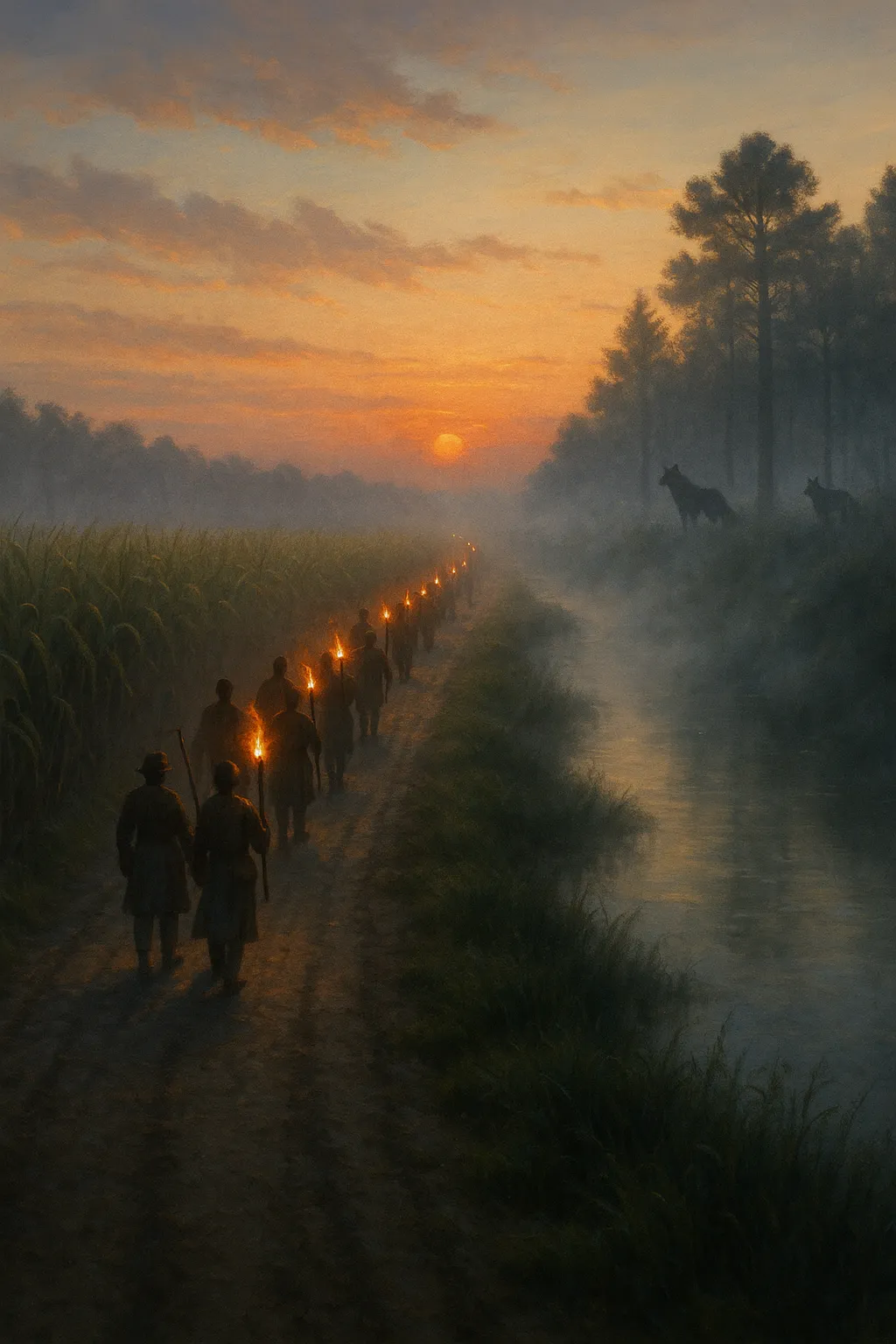
The March That Woke the River Part 1
“It was not the first time blood touched the earth, but it was the first time the earth answered back.”
Come closer to the fire and let the smoke stitch memory to your clothes. I will tell you of the night cane fields learned a war song, when four lanterns rose from four plantations and walked together as if the ground itself had decided to stand.
They called our elder Makaya Dumisani in that lifetime, the one who would be born again as Xavier to keep the circle unbroken. He wore the quiet of a driver and the eyes of a drummer. He listened for messages braided into pestle rhythms, for orders hidden in praise songs, for the way the wind changed when a free name passed from mouth to mouth.
Across the German Coast they had heard about Haiti, a mountain that threw off a yoke and taught the sea a new prayer. The slavers heard it too and slept with guns stacked like wood. They knew revolt was possible. They did not know the land had already taken a side.
On Draeke’s cane rows the plan ripened. Bartholomew Iron Draeke was away, counting sugar and enemies. Overseers swaggered where they were not loved and thought fear would do what kindness would not. Makaya walked the fields by day, marking who could run, who could fight, who could read the river. By night he prayed the old way, palm to chest, cheek to earth, whispering to the Ancients. The answer came with frost on the grass: go.
The first light of that going looked like kitchen fires waking early, then like torches, then like a road of embers moving toward New Orleans. The four families answered in turn. Dumisani carried the memory and the drumbeat. Abebe carried the gates between breaths and bodies. Adeyemi carried the shields and the iron courage. Idrissi, still in the long shadow of their fear, carried the scouts who knew how to walk a fence without stirring a dog. They burned what needed burning. They spared who could be spared. They said the words that taste like iron: Freedom or Death.
River Road tried to hold them, but the river itself had questions, and questions are doors. The line swelled, two hundred, then more. Cane knives flashed, hoes lifted like spears. A few guns barked. The march sang itself forward.
Power thought it would be simple. Militia boots gathered like thunder two days later. Soldiers came with clean coats and the old lie that order is mercy. They met the march near the cypress where the ground remembers every foot that ever ran for its life. The rebels were outgunned. Bodies fell. Songs broke. It looked, to men who measure with ledgers, like an ending.
The earth had other math.
When the first dozen fell, Makaya pressed both hands to the soil. He did not ask for rescue. He asked the land to remember who taught it to sing. The air changed. A hush like snowfall gathered in a place without winter. The Trail of Tears the slavers had mocked rose from its sleep, not the path of exile our enemies once wanted, but the waterway of return our elders had hidden in grief. It opened in reeds and fog, a mouth of moving light, and the Lupai Koyah drums rolled from inside it like distant thunder.
